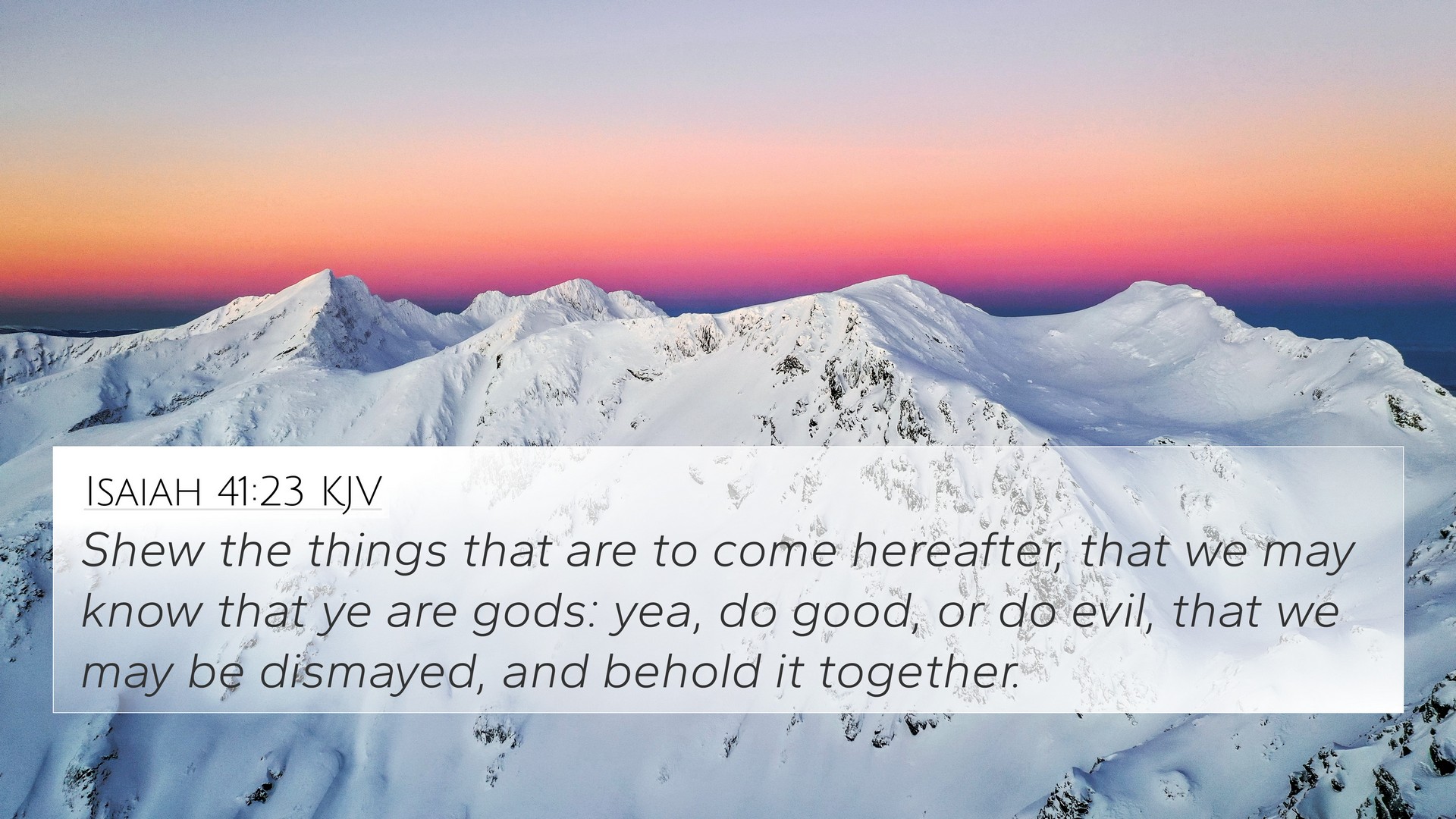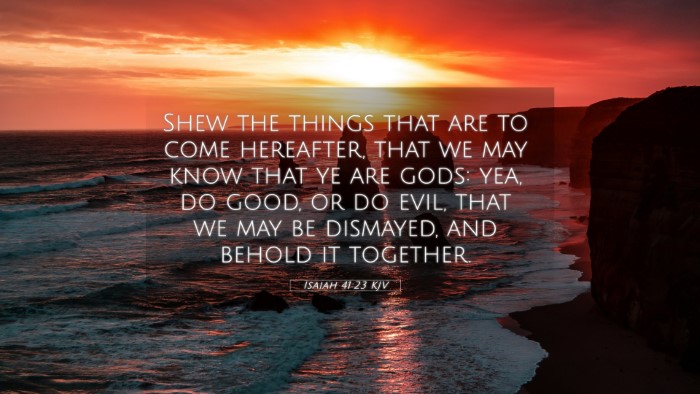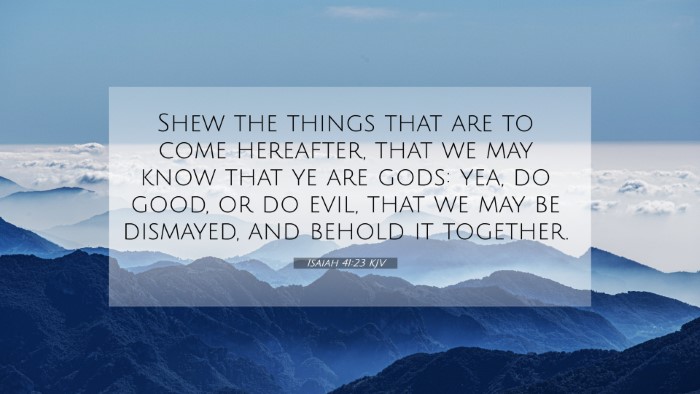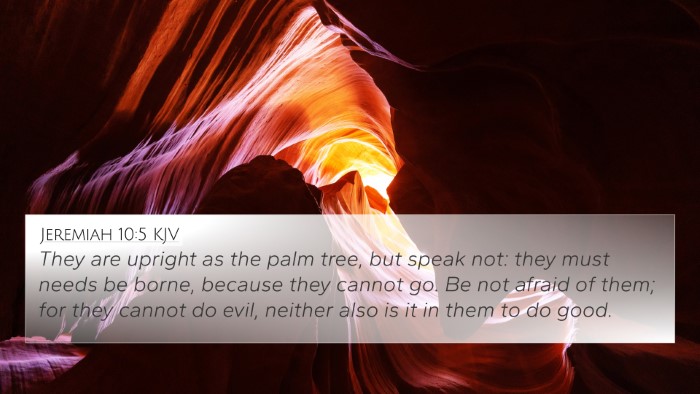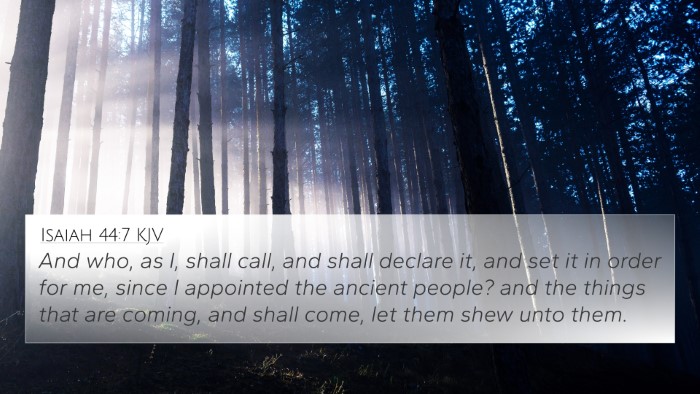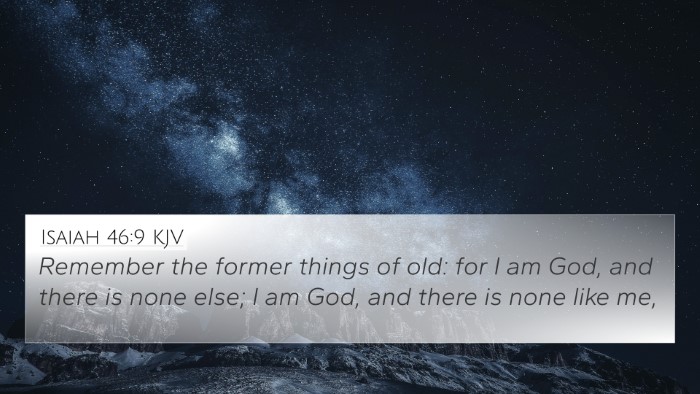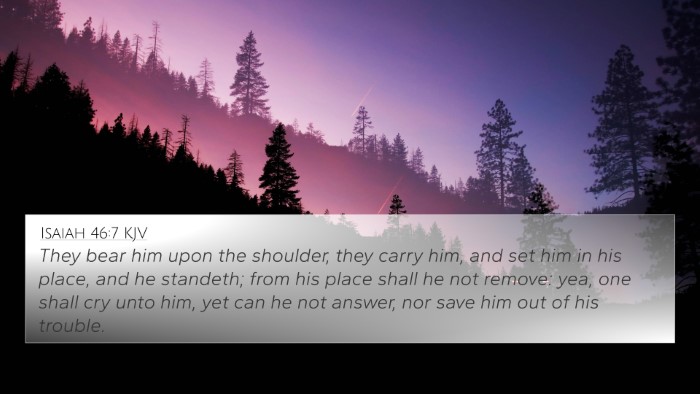Understanding Isaiah 41:23
Isaiah 41:23 states:
"Show the things that are to come hereafter, that we may know that you are gods: yes, do good, or do evil, that we may be dismayed, and behold it together."
Verse Meaning Summary
This verse is a challenge from God to idols and false gods, requesting evidence of their power through prophetic declarations or miraculous deeds. The stark contrast between the living God and inanimate idols is underscored, highlighting God’s sovereignty and omnipotence. Prophets like Isaiah often emphasized proof of divinity through prophecy—a theme that resonates throughout Scripture.
Commentary Insights
-
Matthew Henry
Henry discusses how God invites the idols to demonstrate their power by either performing good or enacting evil, thus proving their capability. The essence of divinity is tied to foretelling the future—a task that only the true God can undertake. Henry notes the futility of trusting in idols that cannot forecast events, asserting that this validates the faith in Yahweh.
-
Albert Barnes
Barnes highlights that this verse emphasizes the inability of false gods to perform any act of foresight or retrospective prediction. He draws attention to the rhetorical nature of God’s challenge, which serves to instill a sense of awe and reverence towards the Creator. True divinity is demonstrated through the knowledge of the future and the authority to affect the present.
-
Adam Clarke
Clarke remarks on the profound implications this verse holds for understanding the nature of God versus the gods of the nations. He notes the call for action—either perform good or evil—underlining that both cases would highlight the power of the divine. Clarke emphasizes the message that only the omnipotent Creator can predict future events accurately, reinforcing the futility of idol worship.
Bible Cross-References
This verse relates to several other scriptures that emphasize God’s power, sovereignty, and the futility of idol worship. Here are notable cross-references:
- Isaiah 40:25-26: God questions the comparison between Himself and idols.
- Isaiah 44:7-8: God challenges other gods to declare their predictions.
- Jeremiah 10:5: Describes the impotence of idols that cannot speak or act.
- 1 Kings 18:24: Elijah challenges the prophets of Baal to demonstrate their god's power.
- Acts 15:18: Shows that God has known all of our works from the beginning of the world.
- Revelation 19:10: The testimony of Jesus is the spirit of prophecy.
- Psalm 115:4-8: Discusses how idols cannot do anything; they are mere creations of human hands.
- Isaiah 43:9: Invites all nations to testify to the greatness of God.
- Deuteronomy 32:39: Asserts that only God has the power over life and death.
- Matthew 10:29: No sparrow falls to the ground without God’s knowledge, demonstrating His sovereignty.
Connections Between Bible Verses
Isaiah 41:23 calls for a comparative analysis of various biblical texts that reflect similar themes:
- Thematic Connections: The challenge to idols connects to the idea of God's unique ability to foretell the future in both Testaments.
- Cross-Referencing Biblical Texts: Notable verses such as Isaiah 44:24 affirm God as the Creator, reinforcing Him as the true practitioner of fate and destiny.
- Inter-Biblical Dialogue: This verse engages with narrative arcs from Genesis to Revelation, where the theme of predictive prophecy culminates in the New Testament through Christ's foretelling of events.
Tools for Bible Cross-Referencing
To better understand the connections highlighted, using tools such as a Bible concordance or a Bible cross-reference guide can enhance study quality. These resources assist in:
- Identifying related themes and concepts across scripture.
- Preparing sermons that intertwine various biblical lessons and prophecies.
- Conducting a comparative study of Pauline epistles and their connections to the prophets, as informed by verses like Isaiah 41:23.
Conclusion
Isaiah 41:23 serves a vital purpose in the biblical narrative, providing clarity on fundamental differences between the living God and lifeless idols. The emphasis on prophecy not only encourages faith in God but also strengthens the understanding of scriptural cross-referencing to enrich personal study and sermon preparation.
